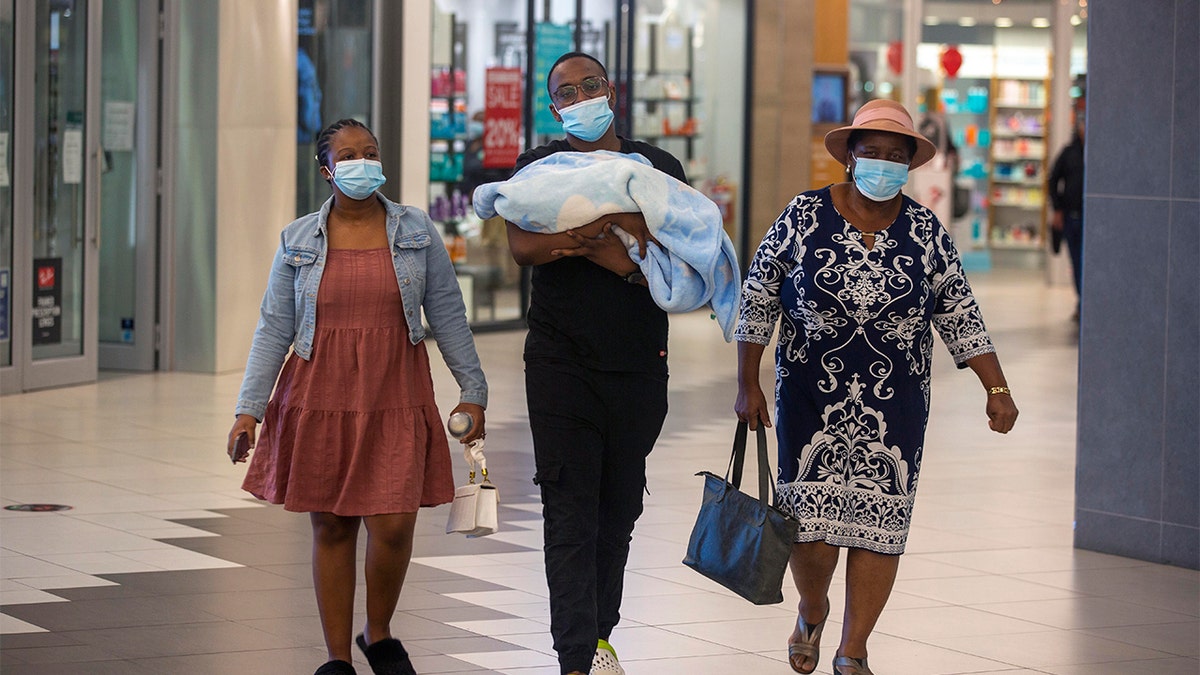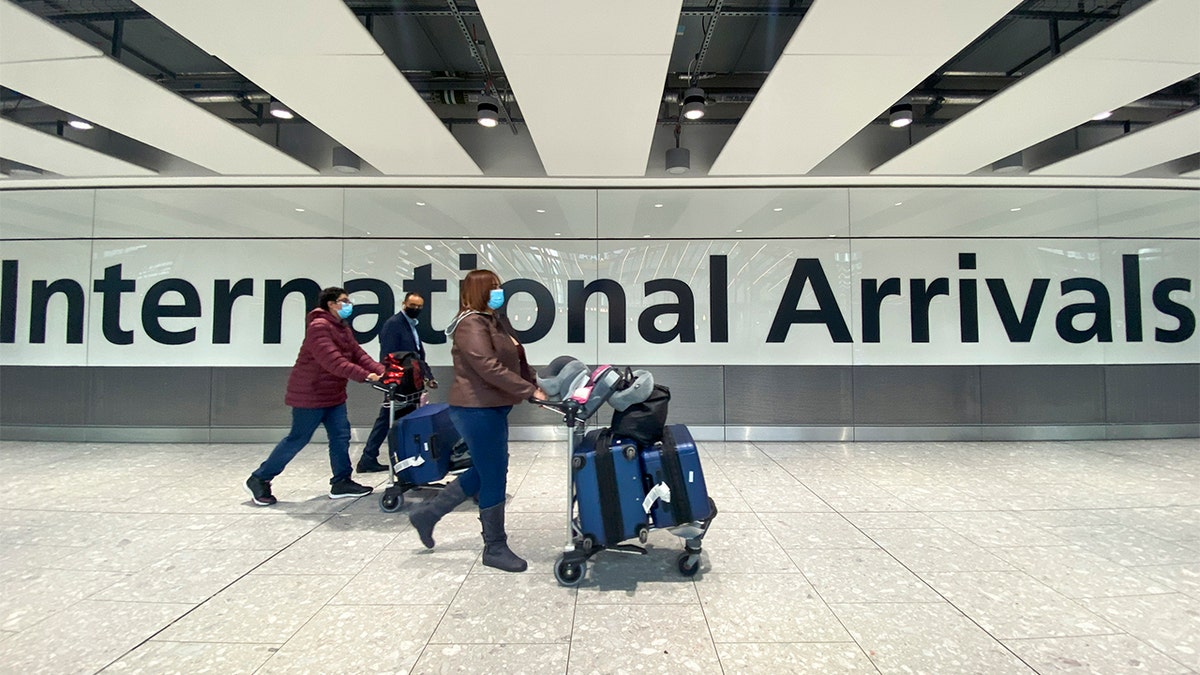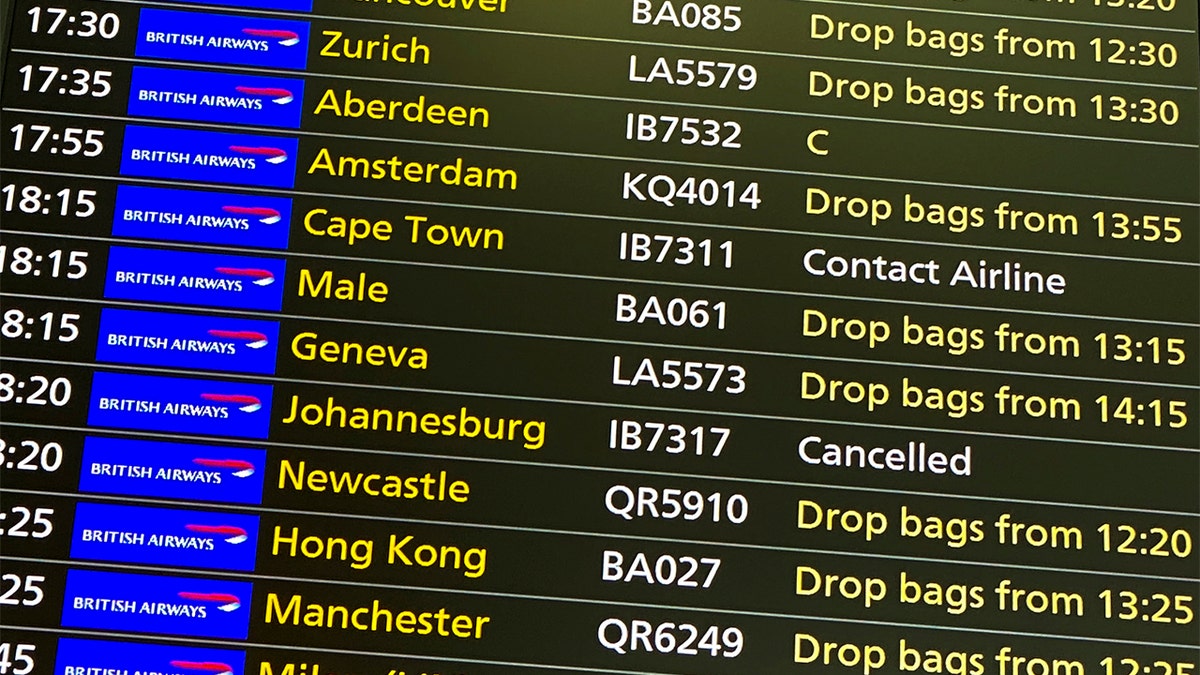Fox News Flash top headlines for November 26
Fox News Flash top headlines are here. Check out what's clicking on Foxnews.com.
Nations took swift action Friday to halt air travel from southern Africa in reaction to news of a new, transmissible COVID-19 variant.
Although the World Health Organization (WHO) cautioned against hastily imposing travel restrictions linked to the B.1.1.529 variant, warning officials to avoid "knee-jerk responses," the 27-nation European Union said it would propose stopping air travel from southern Africa.
EU Commission President Ursula von der Leyen said that flights "should be suspended until we have a clear understanding about the danger posed by this new variant, and travelers returning from this region should respect strict quarantine rules."
She insisted on extreme caution, warning that "mutations could lead to the emergence and spread of even more concerning variants of the virus that could spread worldwide within a few months.
The EU joined Israel and the United Kingdom, who are likewise imposing a travel ban.

People with masks walik, at a shopping mall, in Johannesburg, South Africa, Friday Nov. 26, 2021. (AP Photo/Denis Farrell)
Will the U.S. also impose a ban? Dr. Anthony Fauci, director of the National Institute of Allergy and Infectious Diseases, told CNN that it's a possibility but that scientists need to first determine whether the variant can evade antibodies created by vaccines and viral infection.
"Well, I mean, obviously as soon as we find out more information we'll make a decision as quickly as we possibly can," the White House chief medical adviser on COVID-19 told "New Day" co-host Brianna Keilar. "You always put these things on the table but you don't want to say you're going to do it until you have some scientific reason to do it. That's the reason why we're rushing now to get that scientific data to try and make an informed decision about something like that."
Israel announced Friday that it had detected the country’s first case of the new variant in a traveler who returned from Malawi. The traveler and two other suspected cases have been placed in isolation. It said all three are vaccinated but that it is currently looking into their exact vaccination status.
"We are currently on the verge of a state of emergency," Prime Minister Naftali Bennett said, according to Reuters. (MOVED DOWN)
Belgium became the first European Union country to announce a case of the variant, involving a person who came from abroad.
WHO MEETS TO DISCUSS NEW, 'HEAVILY MUTATED' COVID-19 VARIANT
The U.K. announced that it was banning flights from South Africa and five other southern African countries effective at noon on Friday. Anyone who had recently arrived from those countries would be asked to take a coronavirus test.

Passengers walk through International Arrivals, at London's Heathrow Airport, Friday, Nov. 26, 2021. (AP Photo/Alberto Pezzali)
The South African government called the U.K.’s decision to temporarily ban South Africans from entering "seems to have been rushed," citing the fact that the WHO has yet to recommend next steps.
Germany, an EU nation that has seen new record daily case numbers in recent days, said its flight ban could be enacted as soon as Friday night.
"The last thing we need is to bring in a new variant that will cause even more problems," said German Health Minister Jens Spahn.
Italy’s health ministry also announced measures to ban entry into Italy of anyone who has been in seven southern African nations. The Netherlands and the Czech Republic planned similar measures.

A departures screen displays a cancelled flight to Johannesburg and a message to contact the airline for a scheduled flight to Capetown, at London's Heathrow Airport, Friday, Nov. 26, 2021. (AP Photo/Alberto Pezzali)
CLICK HERE TO GET THE FOX NEWS APP
The Japanese government announced that from Friday, Japanese nationals traveling from Eswatini, Zimbabwe, Namibia, Botswana, South Africa and Lesotho will have to quarantine at government-dedicated accommodation for 10 days and do a COVID test on Day 3, Day 6 and Day 10. Japan has not yet opened up to foreign nationals.
The Associated Press contributed to this report.











































